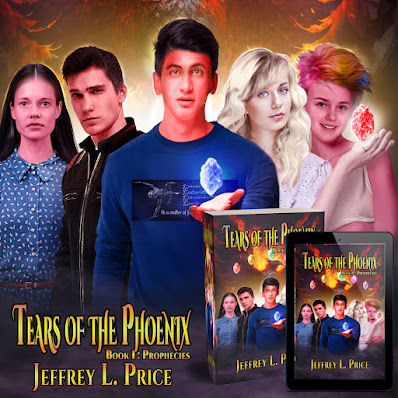Monday, June 30, 2025
“Strange New Worlds” perfect feel-good summer series
I often spend my summers rewatching old Sci-Fi movies from my youth in what I call my ’80s Sci-Fi Flashback and review them to see how they have, or in some cases, have not held-up over the years.
Among the films I re-watched and reviewed last year were “The Final Countdown,” “Blue Thunder,” “Battle Beyond the Stars,” “Ice Pirates,” “Starcrash” and “2001: A Space Odyssey.” I posted my thoughts about them on my personal Facebook page. (I might repost some of them here later this year).
Some like “The Final Countdown,” and “2001” held up really well while a others, like “Starcrash,” not so much.
But this summer, I decided to try something a bit different. I went back and rewatched the first episode of “Star Trek: Strange New Worlds.”
When I first saw it a couple of years ago, I was a bit cranky about some of the choices and visual changes they made to my beloved franchise, especially to the interior design of The Enterprise and some of the changes they made to the characters. And I think it may have negatively colored my opinion of the show.
So when I saw YouTube was offering it free tonight, I decided to give it another watch, this time ready for those changes, and able to view it on its own merits.
I have to say I really enjoyed it and like many other “Star Trek” fans, I think it is perhaps the “truest” to the feel of the original series. It has the same mix of an optimistic future combined with allegorical storytelling that doesn’t come off as too preachy.
I also found it ironic that when the original series aired at the end of the 1960s, the United States was going through a turbulent time and was sharply divided along both racial and political lines, and here we are again, some 60 years later, with another “Star Trek” show airing, going through the same thing. Maybe that’s why this time its message of hope and its belief that reason, science, and logic can prevail when facing our problems resonated with me more than it did a few years ago.
Especially now, when the nightly news seems to be filled with stories about yet another war, social unrest and how our society seems to be falling apart. I needed a break from all that doom and gloom and was looking for some light, summertime fare to make me forget our troubles for a while.
It's nice to see that not all of today's Sci-Fi is all grim-dark and dystopian and I don't always have to retreat into the movies of my youth to recapture that feeling of escapism and fun.
Friday, May 30, 2025
Writing Requires Discipline— Or at least a solid excuse
Well in today’s world, the paper is most likely a blinking cursor in an empty text file, but the sentiment is the same.
So, how do I deal with this?
Easy.
Like any good writer, I procrastinate.
You see, I’ve been so tied up trying to figure out ways to market my first book, Tears of the Phoenix: Prophecies that I have told myself I didn’t have time to write. But that needed to change.
You see I usually get a majority of my writing done in the summer months, and if I want to even try to get the sequel to “Tears” out anytime soon, I’d better stop procrastinating and get to work.
Since I had the week following Memorial Day off, I figured it would be a perfect time to kick-off my summer writing season. I planned to spend every afternoon writing.
But as poet and fellow writer Robert Burns so eloquently put it, “the best-laid plans of mice and men often go awry.”
It’s not like people and events were conspiring to keep me away from the keyboard or the pad and paper I often use to write my first-drafts. It’s just that I kept finding excuses and other things I needed to do first:
I needed to create an author’s website. (I did and you can find it here)
I needed to setup an account on Instagram to start promoting my book there. (I did that too and you can follow it
here)
I need to create an AI-prompt to come up with a social-media marketing plan for me, so I know what to post on those sites. Then after that, I needed to create the posts and videos it suggested. (I’m still trying to figure out how to get either ChatGPT and/or Google Gemini to actually generate the complete post including pictures and hashtags then schedule them to go up automatically, but that’s a topic for another blog).
And let’s not forget about taking my daily walk and doing the chores I’ve been putting off for months as well.
Well toward the end of the week, I started to run out of excuses and did actually sit down and began working on my sequel novel again.
But it really was slow going. I spent the better part of three afternoons staring at my first draft and maybe only getting out 1,000 words. And most of that was a re-write of what I had already written.
But at least this new section is beginning to point me in a new direction and connect what until now had been a few scattered scenes into the beginnings of a coherent story.
I know that like anything else, writing is a habit as much as a skill, and the more I do it, the easier it will become. And I’m hoping that by the end of the summer I will at least have half the story done, because it’s really hard to write when all that blood gets in your eyes.
Sunday, March 23, 2025
Writing a book was the easy part
 |
| You can get the e-book or paperback over at Amazon.com by clicking this picture. |
Princeton’s Author Day at the Princeton Public Library, 65 Witherspoon St., Princeton, NJ 08542 on Saturday, May 10, 2025. So if you’re in the area, please stop by and see me and check out the works of other local authors.
Sunday, February 16, 2025
New Beginnings
 |
My new book which will be published on Amazon.com on Feb 28. |
Well, I finally finished it at the end of 2023 and spent most, if not all of, last year editing it and getting it ready for publication.
Initially I was going to release it in January to coincide with the start of the New Year. But, as the saying goes, even “the best laid plans of mice and men often go awry.”
You see, right around the time I was finishing my book, our dog, Merlin, passed away unexpectedly from a very aggressive form of canine cancer. Of course, Mrs. Blue Scream and I were devastated and I thought he’d be our last dog. Then in December, a new dog, Shadow, came into our life and while he’s a super chill Lab, he’s turned our lives upside-down and just about everything ground to a halt while we worked to get him adjusted to his new fur-ever home. (It’s still a work in progress).
Then just when things were beginning to settle down again, my mom got sick and a few weeks later, she passed away. My mom was my first and often toughest editor, and I know she would have been thrilled to see her baby-boy’s first novel get published. So despite still feeling sad, I vowed to continue my journey in her honor.
It’s been a long road to get here, but I’m glad I made the trip. And as we move further into 2025, I’m looking forward to a new and better beginning with my remaining family, my new dog and my publishing career….
Friday, December 31, 2021
Same Auld, same Auld Lang Syne
This New Year’s Eve instead of singing Auld Lang Syne, I’m going to sing same old anxiety.
Not only does it NOT feel like 2021 has come to end, but it feels like 2020 and to some extent 2019 hasn’t ended either. And with yet another new variant of the Coronavirus spreading throughout the world, it’s beginning to look like things will be very much the same in 2022.
I’m usually an unabashed optimist and always try to look on the bright side of life. (Go ahead and sing it. I know you want to.) But the events of the last few years have left me so very tired that even I am having trouble giving people the benefit of the doubt. I’m beginning to think that Eric Idle was right and not only is life “quite absurd, and death's the final word” but that people are treating life like a piece of $h!t and are making death a joke by listening to pundits and politicians instead of scientist and doctors, who actually know what they’re talking about.
I’m also exhausted by all excuses people give like “the government can’t tell me what to do” or wearing a mask or vaccine mandates “violate my rights.” I’m tired of trying to explain to people that even in a democratic society, government DOES in fact have the right to tell you what you can and can’t do. If it didn’t, we’d be living in anarchy not a democracy! Furthermore, with the rights we have as Americans, comes responsibility to others, yet no one is talking about that!
Contrary to what some pundits would have you believe, the government isn’t saying you must wear a mask at all times and get a vaccine shot or you will be arrested and sent to a gulag somewhere.
No. The choice on whether you want to do that still resides with you. All it’s saying is that if you want to go into public places, you will need to abide by certain rules designed to help protect others. It’s your choice. Don’t want to mask up or get the jab? Fine. The government doesn’t care. You can stay home and do what you want. But if you want to venture out into public, where you can potentially spread the virus to your fellow citizens – or worse yet catch it yourself – then you have mask up or get vaccinated. The choice is entirely yours.
I don’t understand why people can’t seem to grasp this concept. Growing up, I never heard one complaint about the “No Shirt, No Shoes, No Service” signs on restaurant doors. If you wanted to eat out, everyone knew you had to put on a shirt and at least wear some sandals before entering an establishment. Same thing about the 25 MPH speed limit through residential neighborhoods. No one ever screamed that the government was violating their rights by making them drive their car slowly through streets kids play on instead of driving it however fast they want.
These are THE SAME TYPES OF RESTRICTIONS as the mandates that people are now screaming about! And despite a year’s worth of proof that masks and vaccines drastically slow the pandemic’s progress, there’s still a large minority of the population who doesn’t believe this.
That’s why I’m no longer optimistic that 2022 will be any different than 2020 or 2021. If this keeps up, the pandemic will drag on and on and drawing ever closer to my friends and family until it finally claims someone close to me.
So that why at midnight (with apologies to Scotland’s national poet, Robert Burns ) I’ll be singing:
For old anxieties, my dear
For old anxieties!
We'll need a jab o' vaccine yet
To put to rest old anxieties!
Tuesday, November 30, 2021
Starting a new chapter, literally
You’d think that after spending over a decade trying to finish one novel, I’d be anxious to get it edited and published.
And you wouldn’t be wrong.
I am.
It’s just that now that’s its done, I’ve become more intrigued with the idea of finding out what happed to my characters after the story ended then revisiting events I’ve already written about.
When I grew up, most sequels to stories I loved always seemed to begin with the characters “reset” back to a state near to where we first met them. What they’d been through didn’t seem to change them much at all, so they were ready and willing to take on the next great threat or go out on a new set of adventures.
This was especially true of genre TV shows of the time -- “Star Trek,” the original “Battlestar Galactica” and classic “Doctor Who” as well as films featuring characters like Indiana Jones, James Bond or any comic book character.
Sure, sometimes the writers would pay lip service to the things characters went through in previous stories, but more often than not, it was only used as a plot device to propel the characters into the new story, then all but forgotten.
The problem is things don’t work that way in real life. People just don’t “move on” or reset themselves after experiencing life-threatening events. Just ask any military veteran or first-responder who’ve been through a harrowing event.
It changes them, whether they’ll admit it or not, and while my characters may not be real people to you, they are to me. I figured they’d be suffering some sort of PTSD, and what kind of friend would I be if I didn’t help them through it? So, for the last three months, I’ve been taking them to therapy, helping them explore what they must be feeling and trying to help them figure out how to live with what they’ve gone through.
I have no idea where this is going. I just have a couple of vague ideas banging around in my head, and a handful of characters I really enjoy spending time with. Like my first story, I’m just feeling my way through this, with no set plot in mind. I figure I’ll just keep writing and rewriting scenes until hopefully a coherent story emerges.
And if I get stuck -- which I know I inevitably will -- I can always go back to edit the first story until new inspiration hits.
Sunday, October 31, 2021
Sneak Peak at my new book, Tears of Phoenix
Welcome to the world of Phoenix, a desert planet in orbit of a red dwarf star, it's it's inhabitants call Fornax
Over the last two months, I’ve told you a bit about the novel I it has taken me half my life to finish, Tears of the Phoenix, and while it still needs to be thoroughly edited, I’m anxious to share it with the world.
That’s why I decided to publish the prologue from it, which takes place in the distant past, but whose events sets the whole story in motion.
So, without any future ado, here it is. Let me know what you think of it in the comments below:
PREFACE: Betrayal
The woman on the left, the eldest of the three, looked up, hatred turning her eyes a deep red. “The Tears of The Phoenix are too powerful for any one man to possess,” she spat.
The king back-handed her across the face, hard. “I will have none of that witch!” he said. “Do you take me for a fool? Do you think I would not have taken precautions against your powers?” he asked nodding to two women standing behind him, their eyes glowing red from beneath their hooded white robes. “For far too long we have been ruled by you Tyrs and your constant rivalries! All you have brought us is war after bloody war. I am so near to ending at that…”
A white mist began to swirl around the men, who suddenly seemed to be receding, though they were not moving. Soon they were completely obscured. Then through the fog emerged two balls of flame. They burned through the mist, finally transforming into a set of glowing red eyes.





